#TechTeen – Pooja Chandrashekar
 Pooja is an 18-year-old freshman at Harvard University and is originally from Northern Virginia. She is majoring in biomedical engineering with a secondary concentration in global health and health policy. Pooja has spoken about the underrepresentation of women in technology at conferences and summits around the country, and she is the founder and CEO of ProjectCSGIRLS, a national nonprofit working to close the tech gender gap.
Pooja is an 18-year-old freshman at Harvard University and is originally from Northern Virginia. She is majoring in biomedical engineering with a secondary concentration in global health and health policy. Pooja has spoken about the underrepresentation of women in technology at conferences and summits around the country, and she is the founder and CEO of ProjectCSGIRLS, a national nonprofit working to close the tech gender gap.
Pooja is particularly interested in the intersection of healthcare and technology. She currently works as an undergraduate researcher at the Wyss Institute for Biologically Inspired Engineering, interns at Vaxess Technologies, helps design business and product development strategies for Barakat Bundle at the Harvard Innovation Lab, and was one of the directors of the 2016 Harvard Women Engineers Code (WECode) Conference.
Follow her on twitter at @poojac2019, and check out her website www.poojachandrashekar.com for more information on this amazing young woman.
How did you first become involved with coding and technology?
I first became involved with coding and technology through my school, starting with simple Logo programming and then moving on to RobotC, HTML, and Python programming. I also participated in summer enrichment programs when I was in middle school in areas including game programming, web design, and Alice programming. I’d say I started to feel comfortable with my skills by my freshman year of high school, which is when I really realized my passion for computer science and technology.
Have you created any apps? Tell us about them!
For the past couple of years, I’ve been working on an app to analyze speech patterns and predict with 96% accuracy if a person has Parkinson’s disease. So the idea is you record your speech for 10-15 seconds and by using phonetic analysis and machine learning, it can predict whether or not you have Parkinson’s by looking at variations within typical speech characteristics. I’ve always been fascinated by neurodegenerative diseases and was disconcerted by the fact that there is currently no gold standard for diagnosing Parkinson’s, so that was what inspired me to see if I could come up with a more quantitative and data-based solution. To build the app, I needed to learn Android app development, how to use phonetic analysis software, and how to build a neural network machine learning structure.
What programming languages are you familiar with?
I have experience with Java, Python, MATLAB, and C. I’m currently learning R and hope to pick up C++ and PHP soon!
What is it that you enjoy about programming?
I love how logical programming is. It’s so much like solving a puzzle step-by-step and I really love the process of taking a step back, trying to mentally or physically sketch out what exactly I want an algorithm to accomplish, and then going back and tackling the problem again.
More generally speaking, I love how much of an impact you can make with coding and technology. I was, and continue to be, fascinated by computer science because of its potential for social impact and how it can be used as a tool to make a difference and I want to help other students see that too!
Why do you think students should learn how to code?
Learning how to code opens up such a wide array of possibilities. In today’s world, nearly every career and field of study is being revolutionized by technology – from software engineering to the healthcare industry to design, knowing how to code is becoming absolutely essential. Interested in conducting amazing computational biology research, building mobile apps at hackathons, or programming games in your spare time? Learn how to code!
Do you see yourself building a career field in the tech field?
I’m really passionate about the intersection of healthcare and technology and am excited by how digital, mobile, and data analytics technologies are going to transform healthcare as we know it. My dream job would be at the nexus of medicine, technology, and entrepreneurship as a physician developing innovative healthcare technologies and pioneering new models of healthcare management and organization. I hope to pursue an MD/MBA and continue to combine my love for engineering and data analytics with my love for biomedical research and working on global health challenges.
What advice do you have for other beginners?
Just go for it! There are so many resources available to help you get started (Codeacademy, Code.org, Khan Academy, etc.) and you just need to take that first step to find a supportive community of other students who are also interested in learning how to code. I’d say resources, community, and mentorship are the three important factors. Reach out to mentors at your local university or your high school’s computer science department to ask if they can guide you – mentorship has been so important to my development and work.
